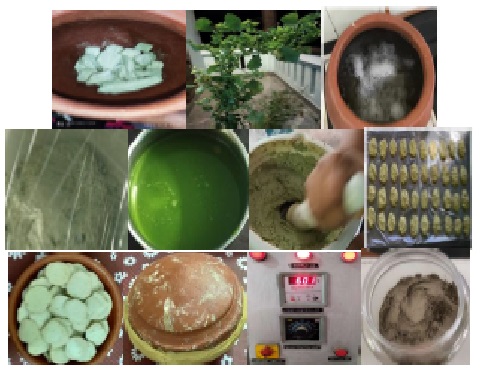Standardisation of Various Processes in the Preparation of Kousheyashma Bhasma Accounting its Clinical Utility
Abstract
Asbestos, one among the inosilicate group of minerals is listed under the Sikatha varga (Silicate compounds) in the Rasasastra treatises, in the name, Kousheyashma. Though the asbestos is vastly used for commercial purposes, it is not found to be used in clinical practices owing to its toxicity. But in Ayurveda, Acharyas have opined that by the judicious usage, even the poison can be bestowed medicinal value. And hence, after undergoing appropriate pharmaceutical processes as mentioned in the treatises, Kousheyashma can be effectively administered in Bhasma (after incineration) form in the treatment of various ailments like leucorrhoea, painful micturition, inflammation of urinary tract, menorrhagia.
In this work, an attempt is made to expose the hidden medicinal values of asbestos by converting it into Bhasma form. Kousheyashma is a very cost effective and potent medicine which could be effectively used by Ayurvedic practitioners. In the present work, conversion of raw Kousheyashma into medicinal Bhasma form is discussed elaborately. The processes involved includes Sodhana and Marana of Kousheyashma. The liquid media used for the purpose of Sodhana was Gomutra and for Marana purpose, Harithamanjari swarasa was used. Three Putas were required to obtain Kousheyashma bhasma which satisfied the Bhasma pareekshas.
Downloads

Copyright (c) 2022 International Journal of Ayurveda and Pharma Research

This work is licensed under a Creative Commons Attribution-NonCommercial-ShareAlike 4.0 International License.






